Public Health and Health Care No. 2
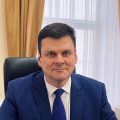
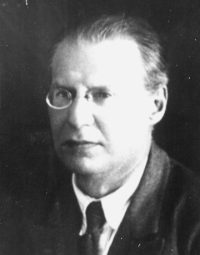
The department was organized in 1924 and received the name “department of social hygiene”;after the Great Patriotic War it was renamed the Department of Health Organization;in the late 60s it became the department of social hygiene and healthcare organization, in 1994 - social medicine, and since 2000 it has had its current name - “department of public health, healthcare and history of medicine”.Professor Isaac Yakovlevich Edelman, who headed the department in 1924, additionally taught a separate course in epidemiology and optional lectures on the history of medicine.
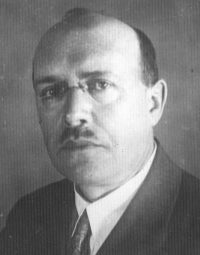
From 1940 to 1952, the department was headed by Professor Mikhail Lazarevich Bensman, who graduated from Novorossiysk University (Odessa), participated as a doctor in the First World War, and served in the Red Army.Since 1951, a course of lectures on the history of medicine was given by associate professor Grigory Nikolaevich Kovalsky, who for a long time worked as the institute’s vice-rector for scientific work and was in charge of the epidemiology course.For two years, teaching was conducted in a course on healthcare organization, which was led by Candidate of Medical Sciences Tatyana Illarionovna Nesterenko.
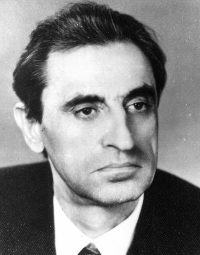
In 1954, Vadim Aleksandrovich Nesterov took over the department.Under his leadership, the formation of classical medical and social research in Kuban took place - a comprehensive study of disability in the region was carried out.Under the guidance of Professor V.A.Nesterov has completed more than 25 dissertations over 30 years.For a long time he was a member of the editorial board of the journal “Healthcare of the Russian Federation”.V.A.Nesterov, a participant in the Great Patriotic War, was awarded military orders and medals.In 1984-1992, the course “Introduction to the specialty” at the department was taught by associate professor Tatyana Vladimirovna Ivanovskaya, who from 1970 to 1975 worked as the institute’s vice-rector for academic affairs.
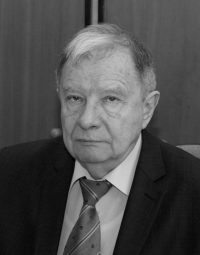
From 1983 to 2012, the department was headed by Boris Andreevich Voitsekhovich, one of the first graduate students of Professor V.A. Nesterov, MD. 43 dissertations, including 5 doctoral dissertations, were defended under his supervision. The great achievement of the department's staff under the leadership of Professor B.A. Wojciechowicz was to bring research to a new level within the framework of international contacts on initiative projects (Center for the Study of Population Health Trends in Eastern Europe and Russia, University of Stockholm, Sweden); work under a grant from the Open Society International Institute; participation in the international study of population aging processes conducted in Russia under the auspices of the World Health Organization (2008).
In 2012, the department was headed by Doctor of Medical Sciences, Professor Andrey Nikolaevich Redko.
From the moment the department was established until the middle of the twentieth century, medical and social research of the staff concerned mainly the epidemiology of infectious diseases and the study of the health effects of the working environment. The first heads of the department, Professors I.Ya. Edelman and M.L. Bensman, remaining mainly representatives of the traditional hygienic field, actively worked in the Bureau of Medical and Sanitary Statistics, linking student education with the organization of medical care for the population of Kuban.
In the middle of the last century, the emphasis was shifted to an integrated assessment of public health indicators. This was based on large-scale studies of physical development, morbidity, disability, and mortality. The work of Professor V.A. Nesterov and his students has determined the direction of disability research in our country for many years. The department was the leading scientific center for disability studies in the USSR. The research was conducted by the staff of our university, researchers from other universities of the country and scientists and scientists from foreign countries.
The continuity of the scientific school established at the department served to develop, under the leadership of Professor B.A. Voitsekhovich, a new scientific direction "Medical and social aspects of public health formation and ways to improve it." The great achievement of the research team during this period was the international level of research and cooperation with the Center for the Study of Population Health Trends in Eastern Europe and Russia (University of Stockholm, Sweden), work under a grant from the International Open Society Institute, and participation in an international study of population aging processes conducted in Russia under the auspices of the World Health Organization.
At the turn of the XX-XXI century, the department's scientific research began to shift to the study of socially significant diseases. Professor A.N. Redko formed a new conceptual direction and developed a methodology for analyzing socially dangerous pathology. A large section of the scientific work of the department was the study of suicide, injury and drug addiction. The research results were used in the preparation of the "State reports on the state of health of the population of the Russian Federation", analytical materials to substantiate activities within the framework of the national project "Health" and the development of a number of policy and program documents at the federal level.
Given the multidisciplinary nature of teaching at the department, much attention is paid to scientific research at the junction of various research areas. At the same time, the leading ones are the study of modern aspects of public health formation (A.N. Redko, G.I. Gurbich, V.V. Pilshchikova), improvement of approaches to the organization of medical care for the population (S.K. Akhedzhak–Naguse, A.S. Fuchs, A.G. Zhilina, V.R. Khan, V.V. Gavrilova, A.E. Govorukhina, S.V. Zvyagintsev), analysis of economic aspects of healthcare (I.S. Lebedeva, T.A. Shiltsova, V.V. Kupina), improvement of information and technical support for medical activities (M.A. Korogod, I.A. Beloglyadova, A.A. Kushnereva), study of historical and medical heritage at the regional level (Yu.A. Vasiliev).

